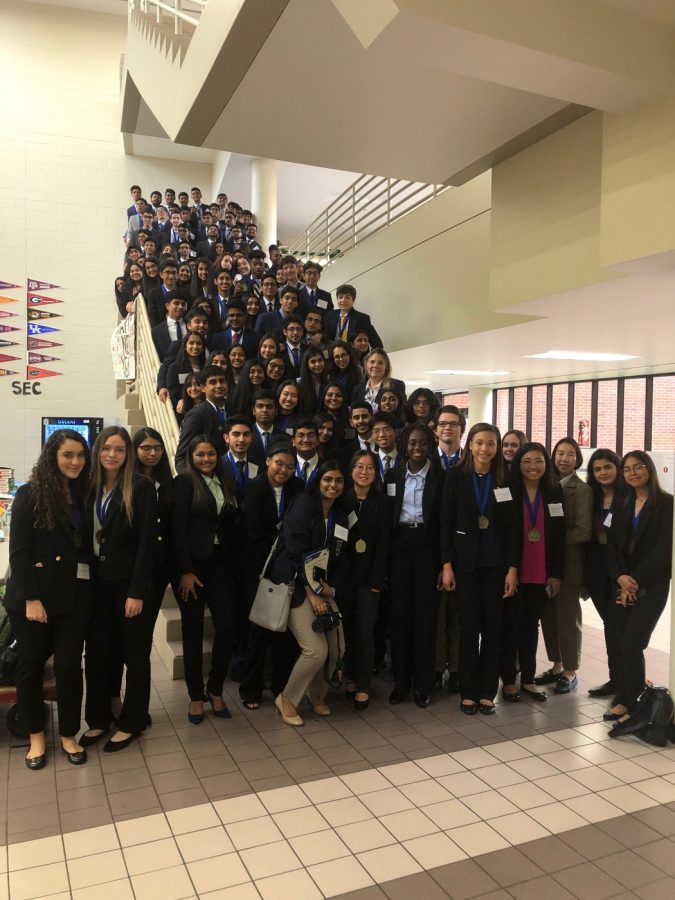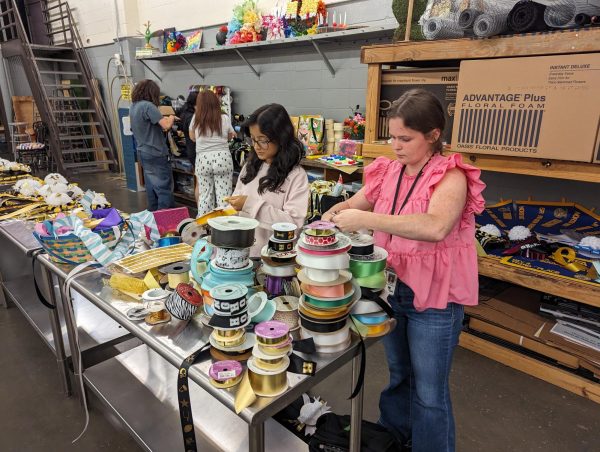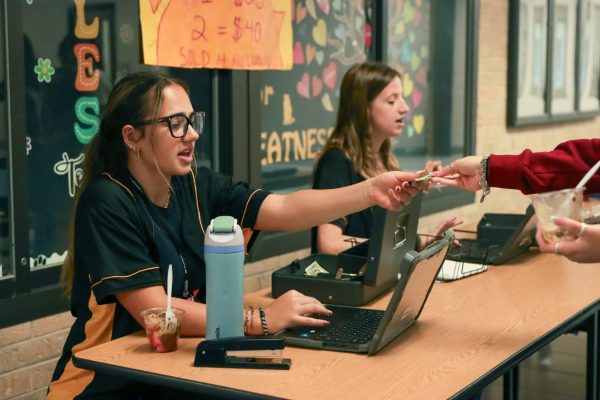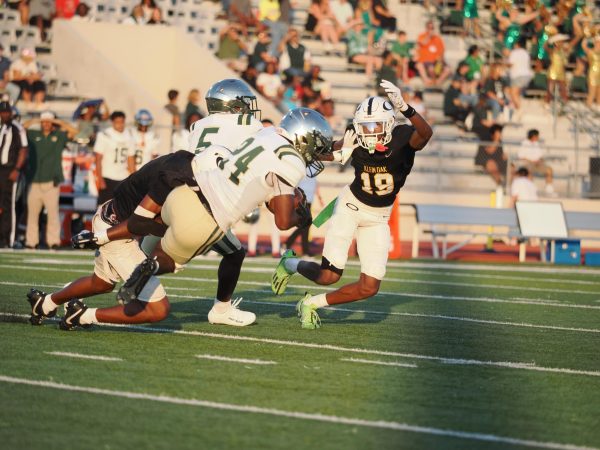A Date with DECA
New challenges arise for state competitors
Last year’s DECA contestants grouped together for a photo after their respective events. This year, it will be more difficult to gather as one group due to restrictions on travel and large gatherings.
Crisp white collared shirts. Sharp, intimidating blazers, sometimes accompanied by a straight tie that catches the eye of the Average Joe. And lastly, a determined look, coupled with a confident smirk. This can be a popular image of people who are in the business world. One of the most important parts of that world is not the sharp business suits worn or the look on one’s face, but something that is especially important right now; the ability to adapt and change.
Mon., Sept. 14, the DECA held its first meeting of the year, virtually. Due to the nature of Covid-19, DECA has changed significantly not only at Klein Oak’s Chapter of DECA, but at every level.
The first of the changes began with the cost. In previous years, the DECA fees had been $80 for competitive members and $30 for non-competitive members. These fees included membership dues, registration prices for each level of competition, including district, state, and international.
If a student won at these levels, they would be able to travel many places with the club to compete, with their expenses paid for.
However, with current travel restricted for public health reasons, the nature of DECA has changed, and to aid students struggling with finances, DECA is now allowing students to pay their fees as they advance. The starting fee of DECA is now $16 for membership as well as additional money for the club shirt. Once the district competition creeps up, students will then be asked to pay their registration fee.
“I honestly like how the prices are cheaper. It’s way better because it’s more affordable which allows the anyone to compete,” senior Nick Hobbs said. “Plus, it’s easier to remember to pay since you just have to go online.”
Another fundamental change lies in the running of competition. Because of the current strict restriction on large gatherings, DECA has temporarily done away with the typical conference, and will now host a virtual one. Instead of meeting with judges in person, students will be given time to make videos of themselves to send in to be judged. Furthermore, they will be able to take their tests from the safety of their homes.
“It’s definitely going to be different, but I don’t think it’s going to negatively affect the experience,” senior Raegan Everson said. “Even though it’s virtual, I will still be able to do my role play and present my ideas to the judges.”
For better or worse, the game has changed and students will have to roll with the punches if they still wish to take home DECA glass from competition.
“I wish I could experience the competition in person,” sophomore Sarah Aly said. “With support, I think I can succeed in this new environment.”
As for the state organization, Texas DECA has not left its members completely hopeless. DECA has presented hosting two challenges, the Entrepreneurship Challenge, and the Case Study Challenge. The Entrepreneurship Challenge has students working individually or with partners to create a new product in a defined industry, and then expand on the idea. The top winner of the challenge can receive a $1000 scholarship. For the Case Study Challenge, it’s more extensive, with eight different week-long case study competitions plus the opportunity to win $500 for each.
These challenges are not only opportunities allowing students to receive scholarships, but also to act as exposure to the heart of DECA. All of the new changes truly expose what DECA is really about: using real-world scenarios to develop students professionally but personally too.
“I love being a competitor and I am basically fighting for my place in the niche of the elite,” said Hobbs. “I believe I can go all the way to ICDC [International Career Development Conference].”









